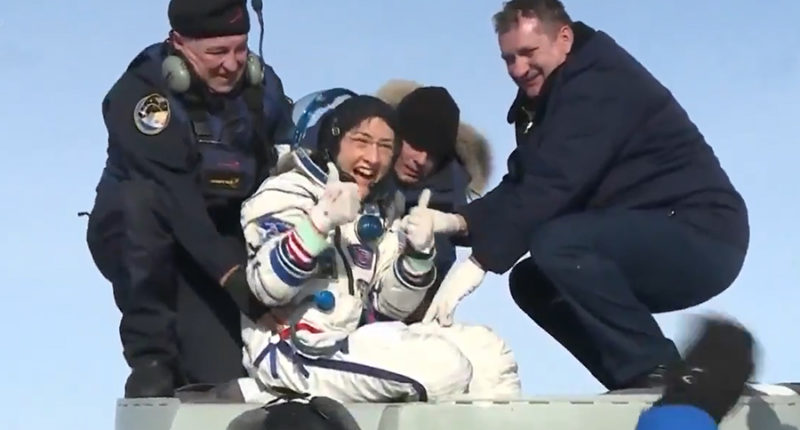It takes a different kind of skin to become an astronaut, and it takes a different kind of person altogether to become a record holding one. The excruciating and overwhelming sensation of getting off the planet you were born in is no small deal, but some are born for excellence, just like NASA astronaut Christina Koch who just returned from her record breaking stay in space with her co passengers Luca Parmitano and Russian cosmonaut Alexander Skvortsov. The trio spent 328 days in the International Space Station(ISS), landing in the boundaries of Kazakhstan at 4:12 AM EST (3:12 PM local time) after the three boarded a Soyuz capsule docked at the ISS at around 12:50 AM EST.
Her tedious stay made her the U.S. astronaut with the second longest stay in space, second only to Scott Kelley, who spent 340 days in space, and also bagged her the title for the longest stay in space by a woman worldwide, which is no small feat.
During her time in the ISS, she orbited the Earth 5,248 times(and you thought 1 world tour was enough), travelling a total distance of 139 million miles(phew!).
She also spent a considerable time outside the space station in the deadly vacuum of space, completing six walks, bagging the record for the first ever spacewalk involving all women with fellow astronaut Jessica Meir.
Although all inhabitants of the ISS look healthy(for someone who sent almost a year off Earth), they will be going through extensive medical checkups to make sure that they in fact, are. The checks are regular for all astronauts returning from space so it is not a cause for alarm.
All is not well in the house of space that we call NASA though. Recently, a bill has been proposed in the US House of Representatives that will effectively destroy NASA’s plans of establishing lunar bases on our ever so friendly Moon.
The proposal comes from the House Aeronautics and Space Subcommittee of the House Space and Science Committee and seeks to limit NASA‘s extraterrestrial endeavors going forward. Among various other caveats, the bill would severely limit NASA‘s ability to conduct scientific research on the Moon in conjunction with civilian partners.
The Tech Portal is published by Blue Box Media Private Limited. Our investors have no influence over our reporting. Read our full Ownership and Funding Disclosure →





